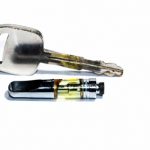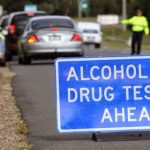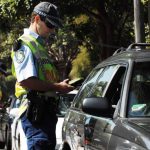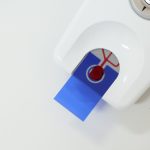Arresting Drivers for Using Cold and Flu Tablets Will Not Save Lives

NSW roads minister Melinda Pavey has announced there will be an expansion of substances that can ‘influence’ drivers for the purpose of laws against driving under the influence (DUI).
She has also announced a strategy designed to assess whether individuals on the Opioid Treatment Program are fit to drive.
In a ministerial media release on 17 July, Ms Pavey stated that the “definition of ‘drug’ in the Road Safety Act” (An Act which doesn’t actually exist), will capture those impaired by a wide range of prescription substances, in addition to new and emerging drugs, and will thereby ensure drivers can be charged with DUI after taking those substances.
Increased penalties for DUI offences took effect on 1 July, and are part of the state government’s Road Safety Plan 2021.
The minister told reporters last week that “the community has asked for it and we are delivering better road safety in NSW.”
However, critics say the changes merely increase the reliance on police guesswork, rather than deliver what many in the community have been calling for, which is a system of roadside drug testing that detects concentration levels scientifically proven to impair driving – like the existing drink driving regime.
Speculation doesn’t save lives
“This is a government that just can’t get it right when it comes to drug driving,” NSW Greens MLC David Shoebridge remarked. “Now they are planning to amend a law that doesn’t even exist.”
The NSW Greens justice spokesperson pointed out that there is no such piece of legislation known as the Road Safety Act, which is the legislation that Ms Pavey announced would be amended.
The minister’s statement has been described as confusing, given DUI laws already cover many legal substances such as codeine and diazepam. There is a suggestion the minister intends to further expand the list of legal drugs that are covered.
Ms Pavey’s office was contacted to verify this, but had not responded by the time of publication.
“The current roadside drug testing regime has no scientific evidence to back it,” Mr Shoebridge stated. “And now the government wants to give police more powers to make subjective judgements about whether someone is impaired by prescription drugs or cold and flu tablets.”
Section 112 of the Road Transport Act 2013 (the Act) provides that a person must not drive while under the influence of alcohol or any other drug prohibited under the Drug Misuse and Trafficking Act 1985.
The offence does not rely on scientific testing. It relies on police evaluating whether a driver is under the influence of alcohol or any other drug. In July, the maximum penalty for this offence was increased to 18 months behind bars and/or a fine of $3,300.
A concern is that if the list of substances is further expanded, police could charge someone for being ‘under the influence’ (which does not mean impaired) of almost any type of drug.
“If this becomes law we will be seeing people lose their licence because they have bloodshot eyes or are a bit jumpy responding to police,” Mr Shoebridge told Sydney Criminal Lawyers®.
Testing for impairment saves lives
Under section 110 of the Act, it is an offence for fully licensed drivers to have a blood alcohol concentration that exceeds 0.5. This limit has been set because it’s been scientifically proven that higher levels of alcohol in a driver’s blood make them a danger on the roads.
Random breath testing (RBT) for alcohol was introduced in NSW in 1982. Since then, the number of fatal crashes involving alcohol has dropped from around 40 percent of all fatalities to 15 percent last year.
As the researchers of the Zero Tolerance Drug Driving Laws in Australia report explain, RBT transformed the once common practice of drink driving into a “highly stigmatised criminal behaviour,” and thereby improved road safety.
But because the premise on which current drug driving laws are based upon is flawed, they do not have the potential to do the same.
Police don’t test for impairment
“We need an evidence-based system for drug driving, just like we have for drink driving,” Mr Shoebridge made clear. One “that tests for all drugs and actually tests for impairment.”
Under section 111 of the Act, it is an offence to drive with the presence of a prescribed illicit drug in a person’s oral fluid, blood or urine. NSW police currently only test for four prescribed illicit substances: MDMA, amphetamines, THC and cocaine.
The NSW government finally bowed to public pressure and included cocaine in its small list of drugs police test for in July. Mr Shoebridge has also been pushing to include prescription drugs in this program, as benzodiazepines are found in the blood of more drivers who cause accidents than THC.
And despite government protests, the range of substances tested for can easily be broadened. In Tasmania, police test for a total of 18 drugs, including heroin, morphine and LSD.
The current MDT system in NSW is a presence-based model. There’s no way of establishing whether a driver is under the influence at the time of testing. A driver can test for minute traces of one of these drugs that they may have taken days before and be fined and have their licence suspended.
Lismore magistrate David Heilpern ruled that Joseph Carrall was not guilty of drug driving in February 2016, as it was found he hadn’t smoked any cannabis for nine days prior to testing positive. Mr Heilpern said many others have claimed they’ve tested positive due to passive smoking.
Zero tolerance isn’t working
So, rather than improving road safety, the NSW government is running a roadside drug testing program that operates as a backdoor method of punishing people for the use of a select number of illicit substances.
It also leaves a driver, who has used a drug such as ice a few days prior, in a position where they still may test positive to traces of the drug in their system. So, there’s nothing to deter them from taking more and getting behind the wheel, as if they’re tested, they’re going to be charged either way.
The solution exists
“This isn’t rocket science. Norway and Britain have excellent models with clear impairment levels set in legislation with nothing left up to guesswork or opinion, Mr Shoebridge explained. “And no one is losing their licence because they had a joint last week.”
The Norwegian government has had laws in place since February 2012, that specify the impairment levels for operating a road vehicle for a whole range of non-alcohol drugs, including the four illicit substances that NSW police currently test drivers for at any level.
A total of 20 drugs are tested in Norway. The laws include impairment levels for a number of prescription drugs, including benzodiazepines and methadone. Individuals are therefore deterred from taking drugs that will impair their ability to drive before getting behind the wheel.
An impairment model is needed
The NSW government has responded to public calls to improve road safety in relation to licit and illicit drug use.
But, rather than overhauling its current system and implementing an impairment-based model, it has decided to focus on the ability of police to guess whether a driver has taken too many Xanax.
“The difficulty isn’t with finding a rational solution,” Mr Shoebridge concluded. “The difficulty we have in NSW is finding rational government.”
Going to court for a traffic offence?
If you are going to court for a traffic offence, call or email Sydney Criminal Lawyers anytime to arrange a free first consultation with an experienced, specialist traffic lawyer who will accurately advise you of your options, the best way forward, and fight for the optimal outcome in your specific situation.








